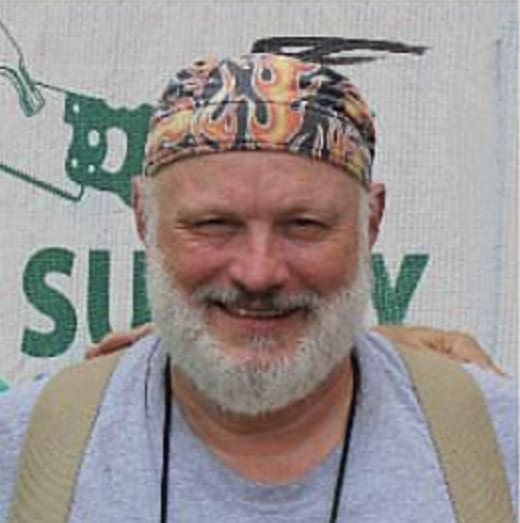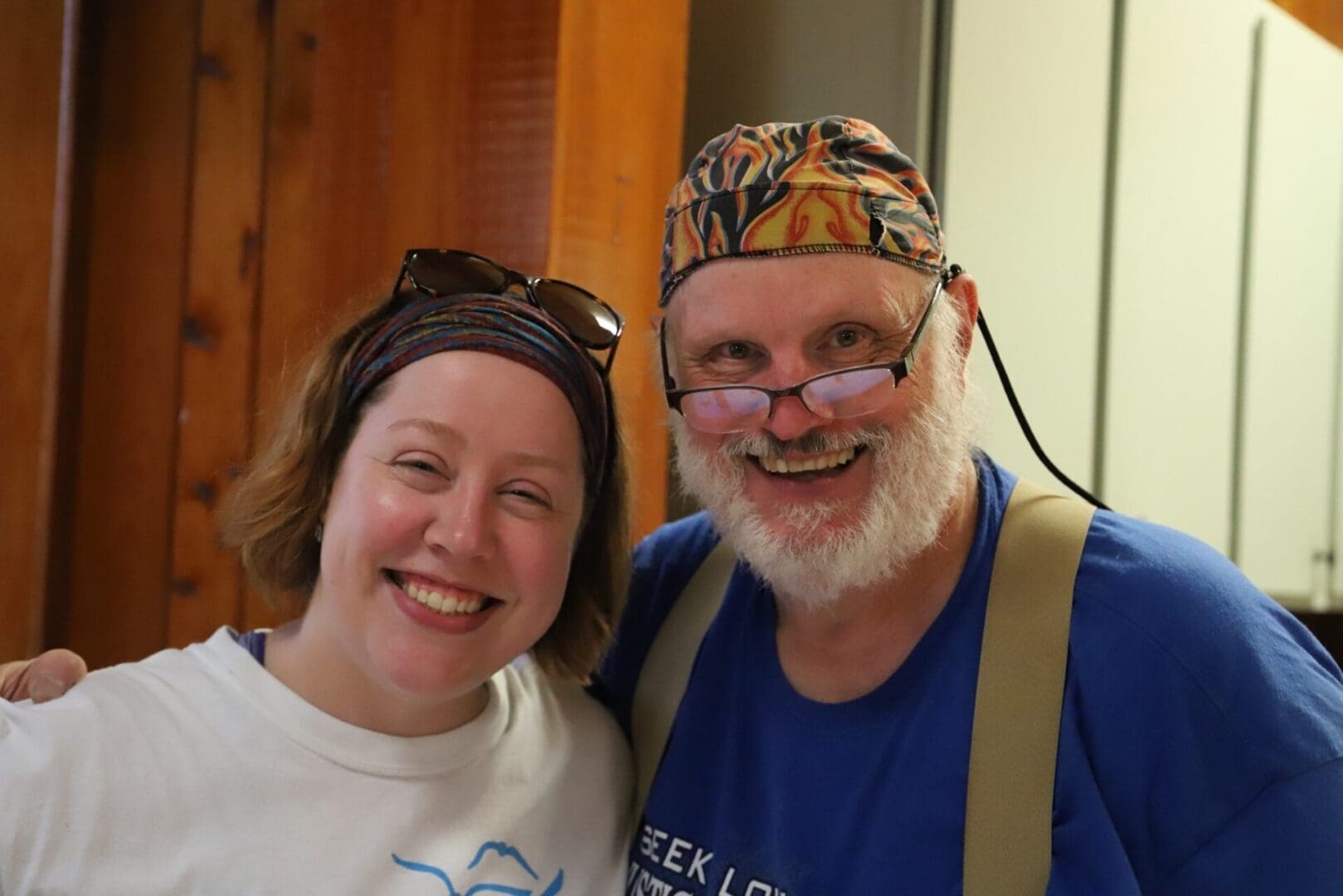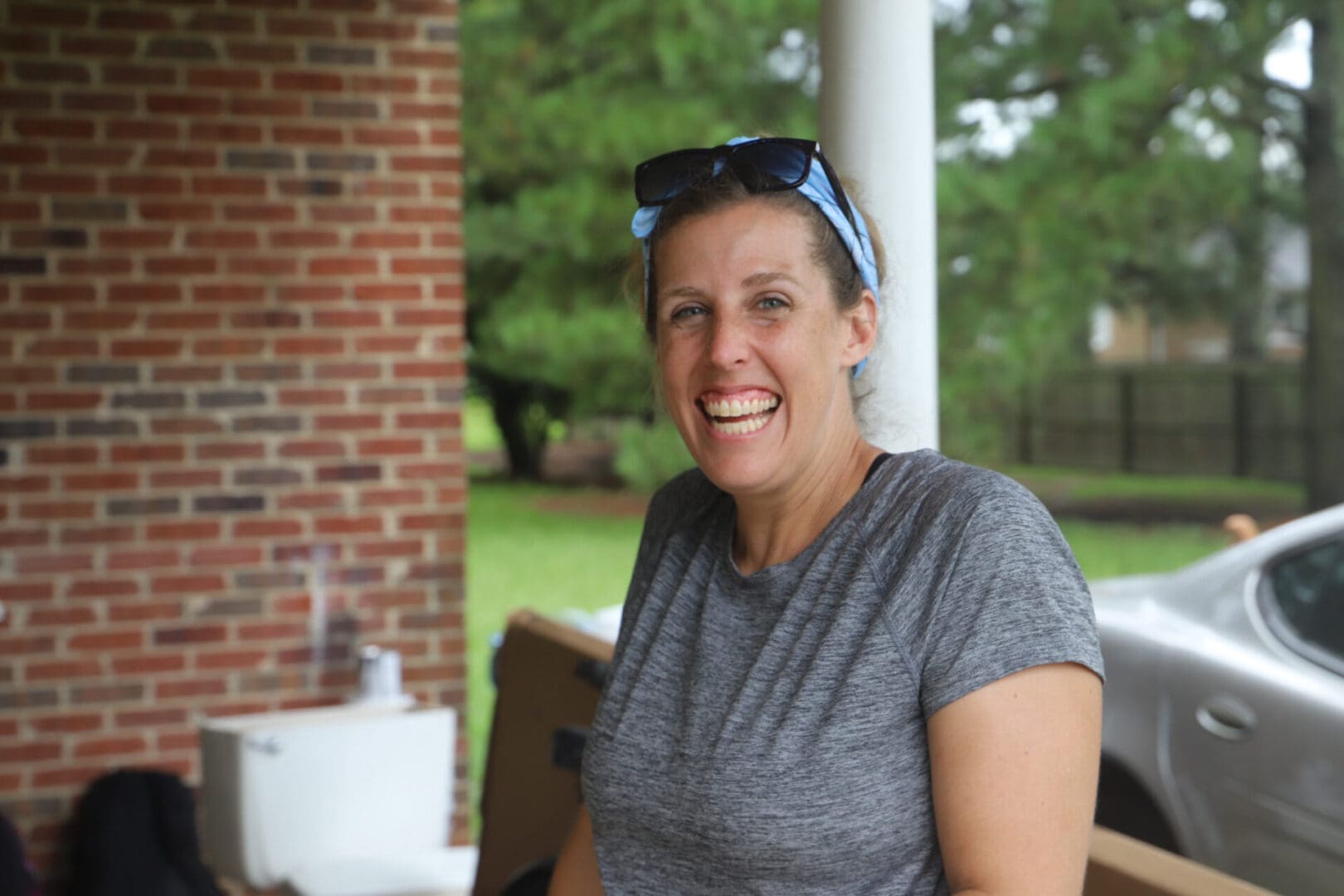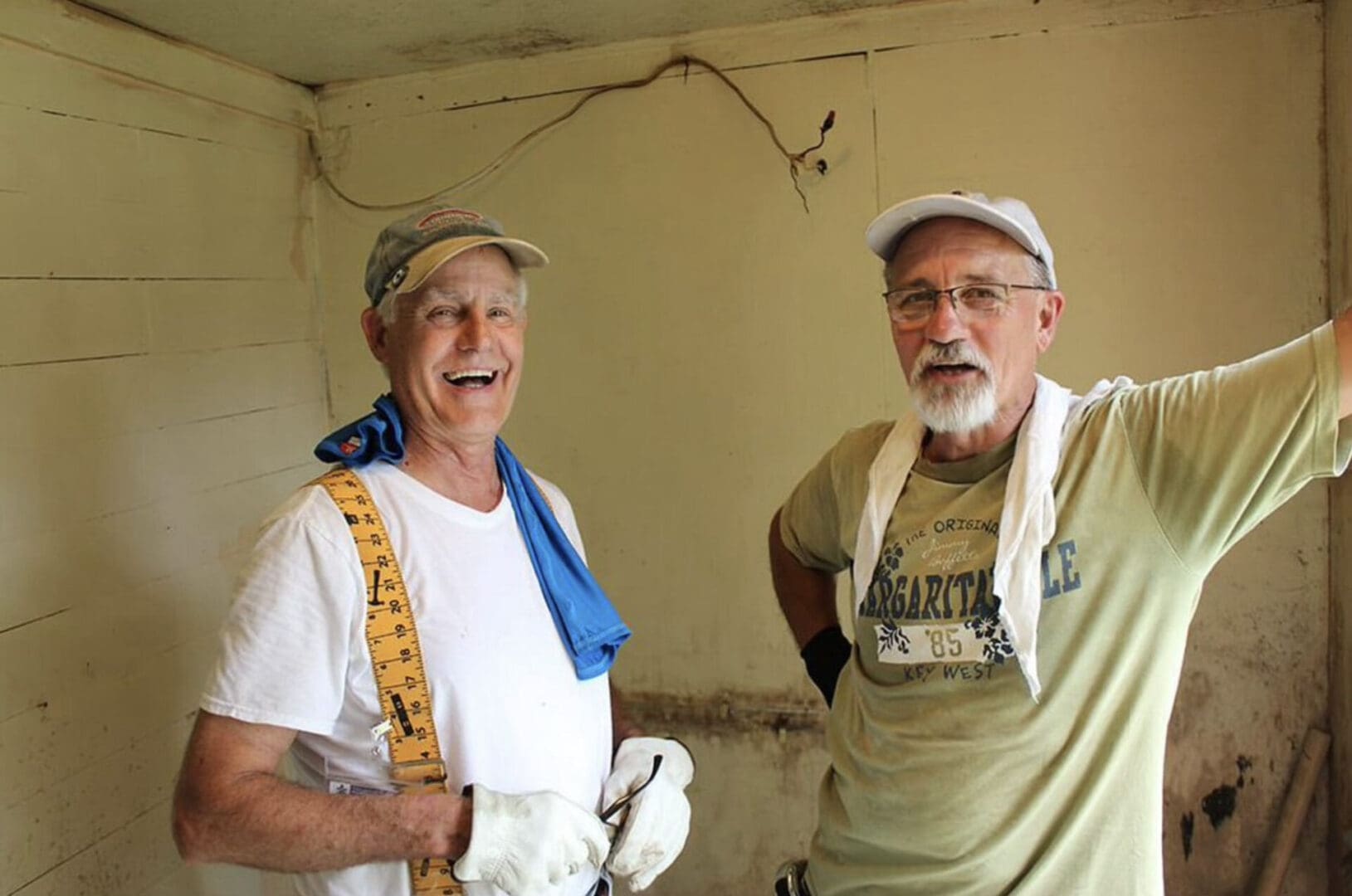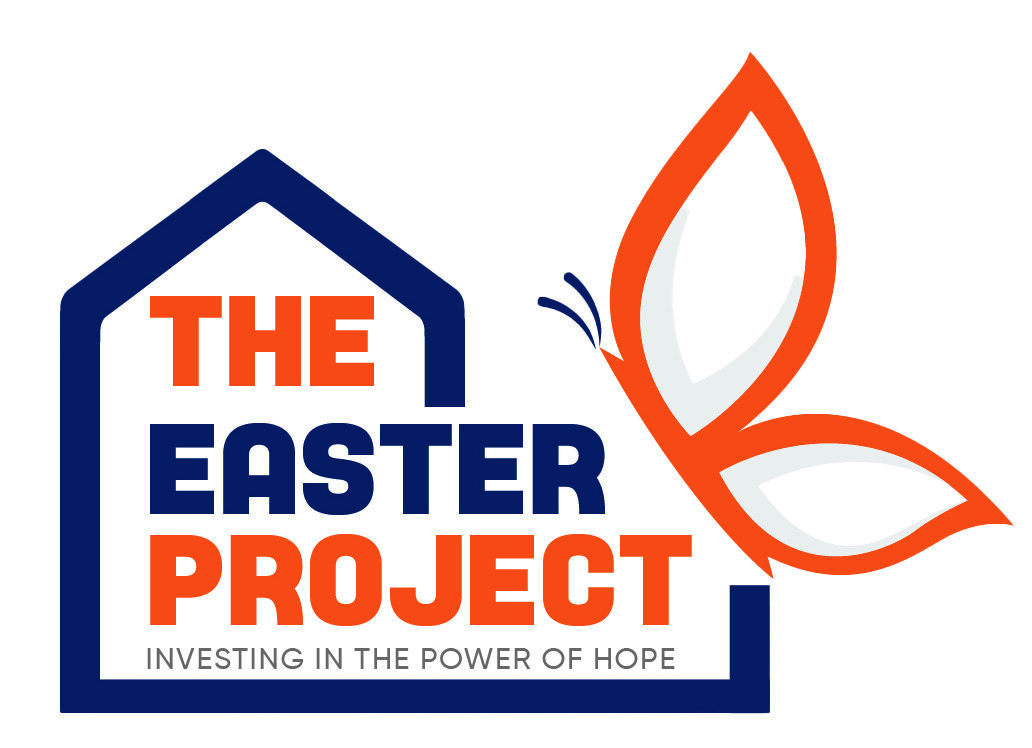Theology of Mission
The Church in Mission lifts the name of Jesus Christ in thought, word, and deed and proclaims Him as “the Word become flesh” through acts of love and healing. By representing the revelation of God in Christ in word and deed, the Church remains faithful to the Great Commandment that we love God with all our heart, soul, mind, and strength, and our neighbor as ourselves. As a loyal community of the Kingdom of God, the Church moves forward full of hope toward transforming the world and the day when God’s mission is fulfilled.
The ministry of The Easter Project is based on the conviction that to follow Jesus Christ's teachings, we must love and care for one another and “the least of these.” Our love must not be words only — true love shows itself in action. The Easter Project allows people to put their faith and love into action. We unite diverse groups to make affordable housing and more vital communities a reality.
The Easter Project affirms that mission building and rebuilding work is not just a service. It's a sacred calling. There are two different places in the bible where the serving craftsman and craftswoman are recognized. The first is in the Book of Exodus 28:3-4, 31:1-11, 35:30-35 where God calls women and men who work with wood, cloth, paint, metal, glass, and other raw materials to communicate HIS truth.
Then, in Romans 12:6-8 the Apostle Paul declares, “We have different gifts, according to the grace given to each of us. If your gift is prophesying, then prophesy in accordance with your faith; if it is serving, then serve; if it is teaching, then teach; if it is to encourage, then give encouragement; if it is giving, then give generously; if it is to lead, do it diligently; if it is to show mercy, do it cheerfully.” Your contribution, no matter how big or small, is a vital part of this sacred work.
At The Easter Project, we believe that everyone has a unique gift to offer. Whether you possess the gift of craftsmanship, servanthood, or both, you have a place on our mission. Team. We warmly invite you to put your unique gifts into sacred action and serve as a means of grace. We enthusiastically welcome volunteers and supporters from all backgrounds. Join us and be a part of our transformative work.
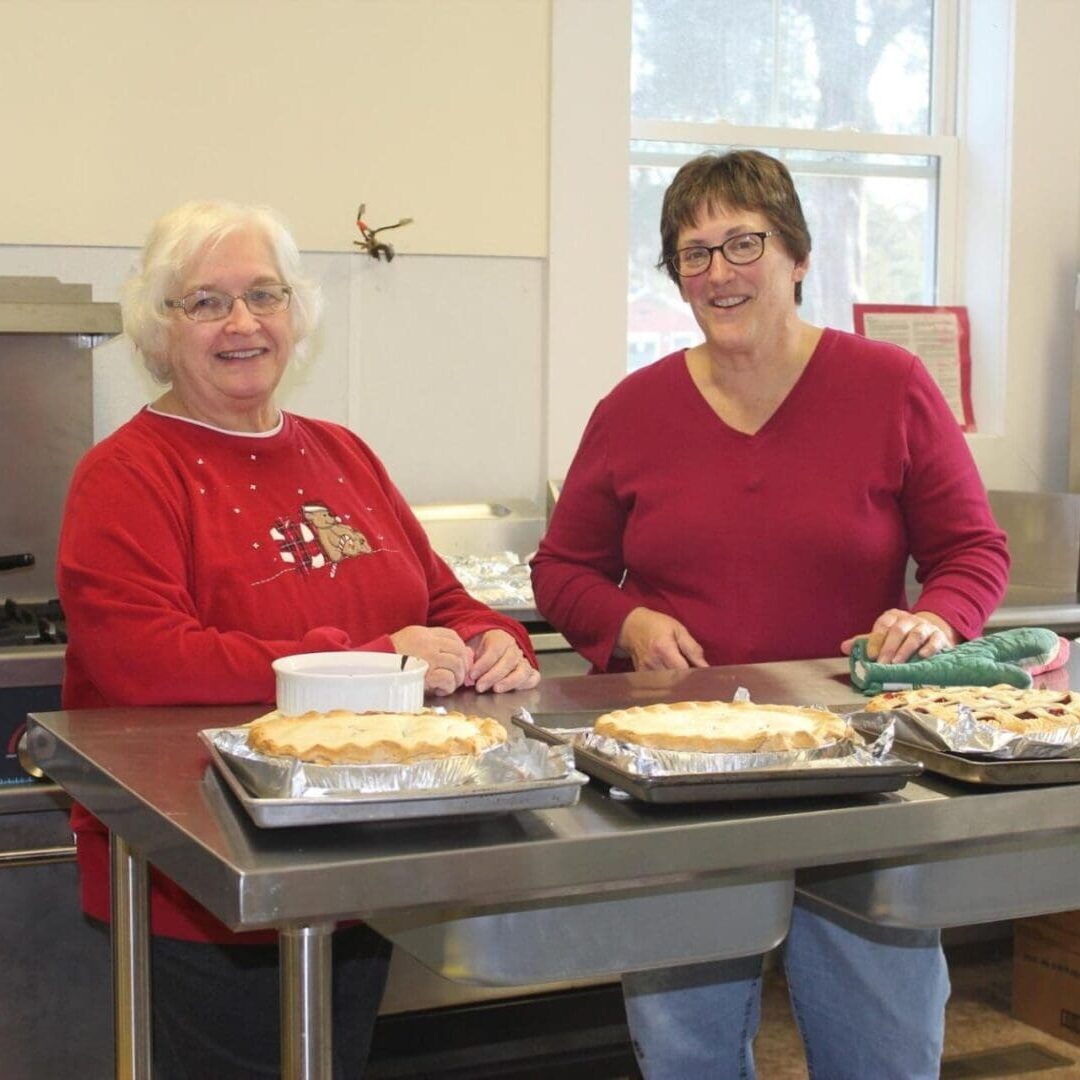
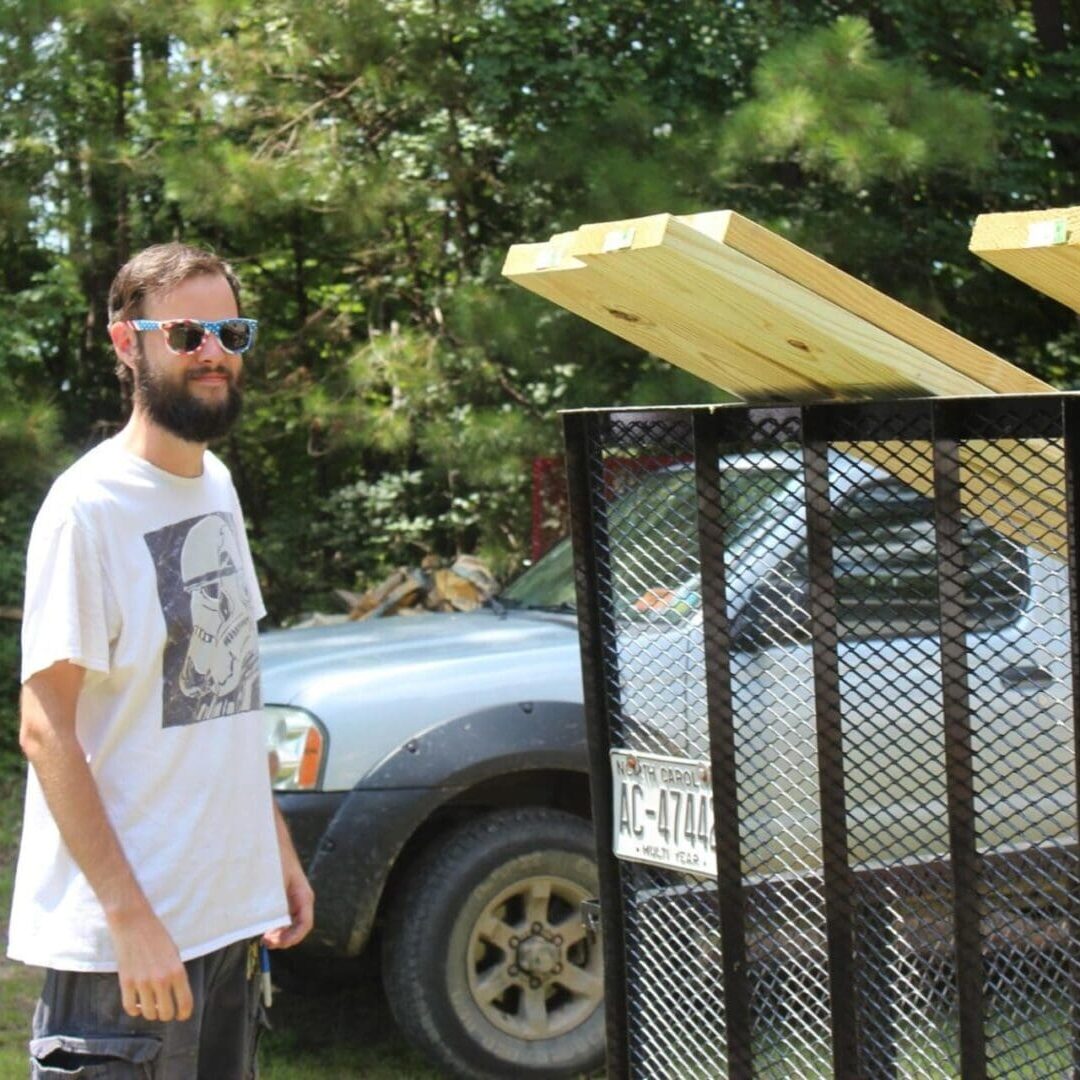
Our Mission
Flipping Houses for Jesus.
Our Vision
We envision a vibrant rural community where low-income people in rural Washington County, North Carolina, have a safe, healthy, and affordable place to call home.
Our Strategy
We create a pathway to simple, decent, affordable rural homeownership by turning abandoned or broken-down houses into safe, healthy, and inviting homes by coordinating public and private resources and mobilizing teams of volunteers and the excellent work of licensed sub-contractors. Our purpose is not just about houses but also building a more robust, vibrant community and economy.
Our Core Values
- We believe that each person is a child of God, imbued with dignity and worth.
- We accept people right where they are and just the way they are.
- We believe that affordable, safe, durable housing is a basic human right.
- We value collaboration with other groups who share similar goals.
- We are committed to witness through the good quality of our work and careful stewardship of our resources.
- We believe God calls volunteers to serve others as partners in ministry and we will encourage their growth in faith as they are involved in this service.
- We value rural North Carolina. We operate with the core belief that our rural communities have inherent faith and cultural values vital to our state's overall well-being. We hold these rural areas as critical to North Carolina’s economy. Our people do extraordinary things when given freedom. And opportunity.
- We Value Volunteers and their Time. We could only successfully fulfill our mission with volunteers' valuable time and talent. We believe that when volunteers sacrificially come to serve in our community, when they pick up a hammer, a paintbrush, a ladder, or a cooking pan, they pick up their cross to follow Jesus.
Our Commitment
- We work in partnership with community leaders and involve residents in our work.
- We believe in the quality of our services' planning, delivery, and evaluation.
- We seek cost-effective leveraging of donated materials, supplies, and labor.
A word from our exective director:
Jay Clark
The numbers are not just staggering, they are a call to immediate action. On the low end, Freddie Mac estimates our national housing shortages at 3.8 million units. On the high end, The National Association of Realtors reports a 5.5-million-unit housing shortage. These figures demand our attention and action.
The National Low Income Housing Coalition’s 2023 report found North Carolina is short 195,000 affordable starter-type units. Using the Coalition’s algorithms, Washington County needs 20 reasonably priced starter homes today. Providing low-income, first-time homebuyers with affordable housing options is a challenge worth undertaking.
By focusing on the housing needs of our essential workers, young families, and other underserved populations, we are committing ourselves to our community's long-term health and strength. While affordable home ownership is not a cure-all for society's ills, research informs us, ". . . homeowners tend to have higher satisfaction, better mental and physical health, and greater civic engagement." So says Mark Linder, research director at the University of North Carolina's Center for Community Capital, who has studied the social benefits of homeownership.
Jason Gray, Senior Fellow at the NC Rural Center, optimistically proclaims, “Demographics do not a destiny make.” He believes that rural counties and regions have “a bright future” when they strategically and creatively confront the most brutal facts of our current reality. This optimism is a beacon of hope for our future.
In Gray’s excellent whitepaper, “10 Strategies for Rural North Carolina’s Future,” he offers a blueprint of hope for rural prosperity. Each of the “10 Steps” is insightful and points the way forward for establishing economically and socially viable communities. Of the “10,” I was drawn to Strategy 6: Invest in more robust entrepreneurship and small business development and Strategy 7: Strengthen homegrown manufacturing. Rural communities that successfully nurture small business development and homegrown manufacturing will create jobs and, by so doing, will flourish.
However, this causes one to consider where the entrepreneur receives funding for a start-up. Each year, Inc. magazine lists the 5,000 fastest-growing companies in America. The Kauffman Foundation surveyed firms listed by Inc. since 1996 to learn about their funding sources. The report states that 68% of the initial funding of start-ups came from personal savings, and 52% of those surveyed also took out bank loans using their home as equity.
Individual property ownership is not just a personal achievement. It's vital to community health and well-being. Homeownership boosts a community's treasury through property taxes, supporting infrastructure projects like roads, water systems, education, and other community programs.
The Easter Project is committed to putting faith into action by purchasing run-down and abandoned homes at below-market value and renovating them to sell to first-time homebuyers. We hope to broaden access to affordable housing as a foundation for breaking the cycle of poverty. We aimed to coordinate resources, mobilize teams of volunteers, and partner with others to accomplish this end. This innovative approach, which we affectionally called 'Flipping Houses for Jesus', is not just a project, it's a beacon of hope that has the potential to transform lives and communities, offering a new lease of hope to those in need.
It is fair to ask, "To a greater or lesser degree, isn't that the purpose of Habitat for Humanity?" I greatly admire H4H and its commitment to bettering the lives of working-class people. There is no better volunteer service provider in all the world. However, their model does not work in communities such as Washington County, NC, that struggle with a dwindling population base to draw volunteers.
Consequently, The Easter Project is one way forward. It is a faith-based ministry that invites churches and volunteers from more well-to-do areas to partner with churches serving struggling communities to help create housing opportunities for their essential workers and young families using derelict houses that would make for economically viable renovation.
Finally, another benefit The Easter Project provides is the joy mission teams experience when coming to Washington County to invest in the power of HOPE. It may be hot, dirty, and exhausting, but it sure is fun. Whether you come from a church or a business wanting to build more robust group dynamics, you’ll leave our community with a deep sense of satisfaction knowing you made a difference.
